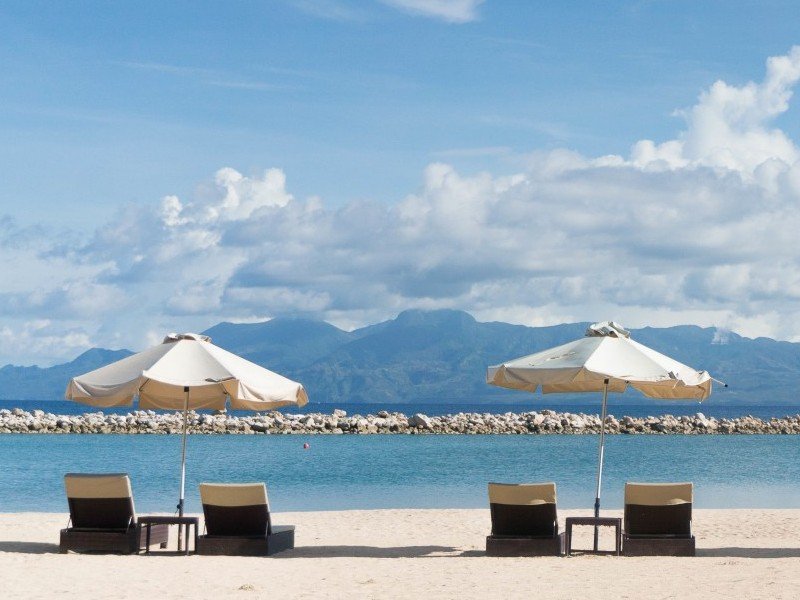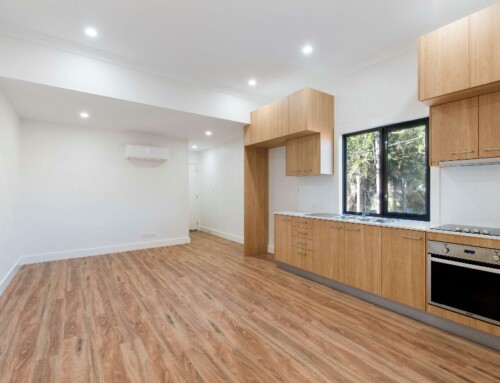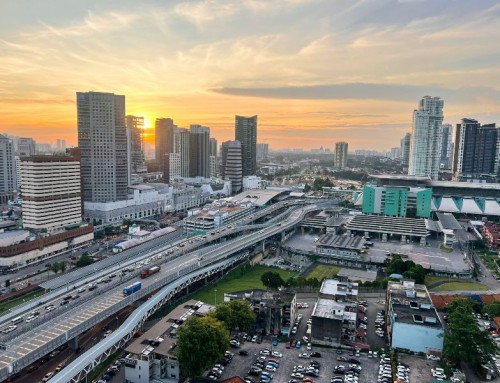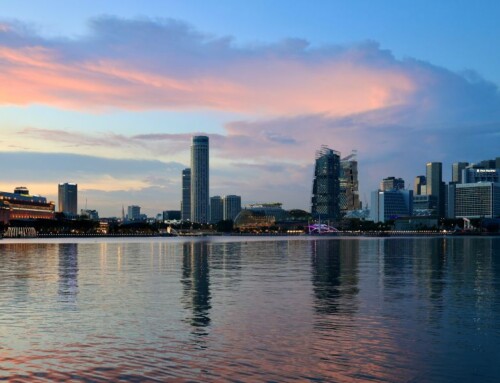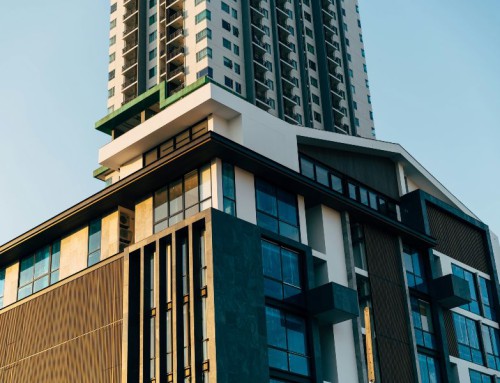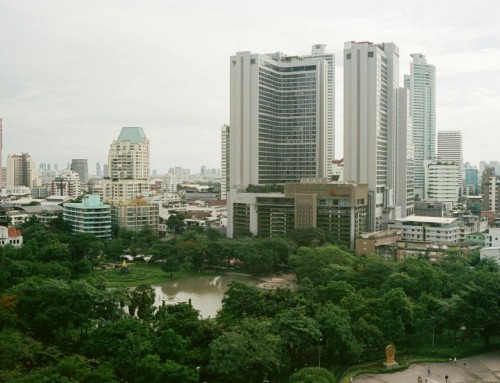Buying a Philippines property
Buying Considerations
- FOREIGNERS CAN ONLY PURCHASE CONDOMINIUMS
Property investment for foreigners in the Philippines is only limited to condominiums. For every condominium, foreigners can only own up to a maximum of 40% of the overall outstanding capital (of the particular development project). Thus, it is important to check with the agent or salesperson if the quota for foreigners to own the property has been exceeded. - PARKING LOTS ARE NOT BUNDLED UP WITH CONDOMINIUM UNITS Parking lots need to be separately purchased and are not included in the cost of the condominium unit. Parking lots tend to be very expensive (between P400,000 and P500,000) to buy. A cheaper option is to rent one at a cost in the range of P4,000 to P10,000 per month. As many buyers opt not to have parking lots, it is not common to have a one-to-one ratio for units and parking lots.
- STATUTORY PROTECTION FOR BUYERS
- Right to clean title (Sections 25 and 26 of PD 957, Subdivision and Condominium Buyers Protective Decree)
- Non-forfeiture of payment (Section 23 of PD 957 Subdivision and Condominium Buyers Protective Decree)
A buyer’s payment for a subdivision lot or condominium unit cannot be forfeited by the owner or developer when he desists paying on the ground that the project is not develop per approved plans and within the time limit for development. He must, however, notify the owner or developer of his decision to suspend payments. - Failure to pay installments (Section 24 of PD 957 Subdivision and Condominium Buyers Protective Decree)
Where the buyer fails to pay his installments for reasons not attributable to the non-development of the project he may avail of his rights under Republic Act 6552, Realty Installment Buyer Protection Act (RIBPA).Provision in RIBPA Type of buyer Protection accorded Section 3 Buyer who has paid at least 2 years of installments Right to refund and grace period Section 4 Buyer who has paid less than 2 years of installments Right to 60 days grace period
- REGISTRATION OF INVESTMENT WITH BANGKO SENTRAL NG PILIPINAS (BSP)
Only investments registered with the Bangko Sentral ng Pilipinas (BSP) are entitled to full repatriation of capital and remittance of dividends/profits using foreign exchange (FX) sourced / purchased from authorized agent banks (AABs) and/or their subsidiary/affiliate foreign exchange corporations (AAB-forex corps). It is therefore important to register your condominium unit with BSP. The following documents are needed for registration with BSP:- Copy of duly accomplished original certificate of inward remittance (CIR) of FX
- Condominium Certificate of Title in the name of the foreign investor, or copy of the Deed of Absolute Sale/Contract to Sell the condominium unit to the foreign investor; and
- Certification from the owner/developer/administrator/ property manager of the condominium attesting to compliance with the foreign ownership limitation under existing Philippine laws.
Buying procedure
- DUE DILIGENCE
- Choosing a location and setting a budget
- Visit the location of the condominium of interest to know its natural topography, with particular focus on its susceptibility to landslide, flooding, erosion etc.
- Check that the condominium Project has a Certificate of Registration and License to Sell.
- Check the following:
- The date of completion of the project as indicated in the License to Sell
- Where the property is mortgaged, a Clearance to Mortgage has been issued by the Housing Land Use and Regulatory Board (HLURB)
- The facilities and amenities represented in the advertisement flyers/ brochures are in accordance with the approved subdivision and condominium plan on file with HLURB.
- Whether the materials of the house or condo unit conform with the development standards and approved construction specifications submitted to HLURB
- Check with the Register of Deeds to ensure that:
- The property has not been sold to others
- There are no encumbrances
- Check the reputation of the developer. For condos that are still in pre-selling stage, the reputation of the developer is very important because it ultimately determines whether the condo building will actually be completed.
- PURCHASE/RESERVATION OF CONDOMINIUM UNIT FROM DEVELOPER
- Purchase
A Deed of Sale (DOS) is executed when a buyer pays the developer in cash (whether using his or her own funds or through funds borrowed from banks). In the DOS, the ownership of the property is transferred from the developer to the buyer, subject to the compliance by the buyer with the Deed of Restrictions or Master Deed with Declaration of Restrictions governing the project and the other terms and conditions of the sale. The DOS must be notarized. - Reservation
To reserve a unit, the buyer needs to fill up a Reservation Agreement form (1 each for every unit and parking space). A Reservation Agreement is a document similar to the option to purchase in Singapore, where the buyer formally expresses his interest in purchasing a unit. The main purpose of this agreement is for the unit to be set aside for the client for a certain period of time (usually 30 days). A Reservation Fee must also be paid when the Reservation Agreement is signed.
- Purchase
- FINANCING OF PURCHASE OF CONDOMINIUM UNIT
Down payments must be paid within a certain period of time after the Reservation Agreement has been signed. The buyer can choose to pay balance either by in-house financing (i.e. loan from the developer) or bank financing. - EXECUTION OF CONTRACT TO SELL
After one to two months from the signing of the Reservation Agreement, the Developer will then provide you with a Contract To Sell (CTS). The CTS is a document where developer promises to transfer to the buyer the ownership and physical possession of the property upon the buyer’s fulfillment of the terms of the sale, and the buyer is obliged to pay the purchase price and comply with the other terms and conditions of the sale. You should check every provision of the CTS that you are going to sign including the annexes. All the signed documents will be notarized and you should have a copy of one original notarized document. - EXECUTION OF DEED OF SALEOnce the full payment of the balance of the sales amount has been received, the developer will execute a Deed of Sale (DOS) in favour of the buyer. The DOS is needed for the issuance of the Condominium Certificate of Title (CCT).
- RECEIPT OF CONDOMINIUM CERTIFICATE OF TITLE
Upon Turn Over (the equivalent of TOP in Singapore), the buyer will receive the CCT. The CCT is proof of ownership of a condominium unit issued by the Register of Deeds of the relevant city or municipality where the condominium project is located.
Selling procedure
- PRELIMINARY ISSUE: ENGAGEMENT OF AGENT
If you engage an agent to sell your property, the agent fees varies from 3% to 5% of the agreed selling price. - SIGNING OF DEED OF ASSIGNMENT/CONTRACT TO SELL
If you are satisfied with the buyer’s offered price, both the buyer and the seller can proceed to execute either the deed of assignment (if the buyer can pay in full) or the contract to sell. Both documents must be notarized to be effective. - EXECUTION OF DEED OF SALE
Once the full payment of the balance of the sales amount has been received, you have to execute a Deed of Sale (DOS) in favour of the buyer. The DOS is needed for the issuance of the Condominium Certificate of Title (CCT).
Taxes
- BUYING
- Stamp duty: 1.5% of the actual sale price, zonal value, or assessed value of the property, whichever is higher
- Transfer tax: 0.5% of the actual sale price
- Value Added Tax (VAT): 12% of the actual sale price
- Registration Fees: Registration fees are payable to the Register of Deeds where the property is located at the rate of P8,796.00 for the first P1.7million plus P90.00 for every P20, 000.00 or fraction thereof in excess of P1.7 million.
- Withholding tax: As a general rule, the buyer is required to withhold 5% of the purchase price, zonal value or TD value of the property, whichever is higher, to be credited to the income tax of the developer.
- Notary fees
- HOLDING
- Association dues
- Amount payable = Fixed amount multiplied by the total floor area of your unit and parking slot, if you have one.
- The penalty interest rate for late payment can range from 1 to 4% per month.
- Property tax
- Property Tax = Fair Market Value of land x Assessment Level of buildings x rate (1% in Metro Manila and 2% outside Manila)
Fair Market Value (Peso) Assessment Level (%) Up to 175,000 0 175,001 to 300,000 10 300,001 to 500,000 20 500,001 to 750,000 25 750,001 to 1,000,000 30 1,000,001 to 2,000,000 35 2,000,001 to 5,000,000 40 5,000,0001 to 10,000,000 50 Above 10,000,000 60
- Association dues
- SELLING
- Capital Gains Tax – 6% of actual sale price.
- Philippines Documentary Stamp Tax – 1.5% of the actual sale price. This is paid by either the buyer or the seller upon agreement.
- Real Estate Agent Fees – 3-5% of the actual sale price
